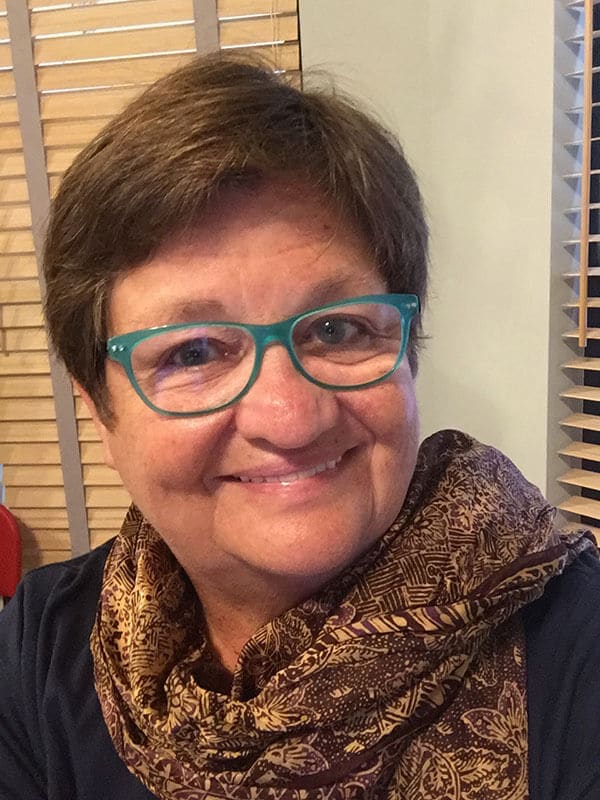
Tips to help instructors create inclusive assessments
Dr. Terri Moore, Faculty Advisor, Pearson | August 15, 2023 in Higher Education

Inclusive Assessing: Are All Students Able to Demonstrate What They Know?
Inclusive teaching is at the forefront of many discussions among educators in public schools as well as higher educational institutions. And while these discussions can be challenging in some arenas, I believe that teachers would agree their highest achievement is their students’ learning, mastering the course content and applying their new knowledge to their future goals. Success as a teacher equals the highest percentage of students possible demonstrating their course competency throughout the course in formative assessments and at the end of the term with summative assessments of their mastery.
However, often overlooked in discussions of DE&I are ideas about equitable assessment types. For me, the question is: Am I offering assessments that truly give opportunities for my diverse group of students to demonstrate what they know or have learned? Or am I just relying on my older methods of testing that leave some of my students without a way to show me they really know the material? Am I just asking the wrong questions, or asking them in a way that is confusing or challenging to some groups of students?
I have become aware that there is a huge gap between asking my students to parrot back the course content on a multiple-choice test and truly assessing their mastery of that content. Can they apply that content? Are they able to reason with this new information at the highest level of learning? Have I given them the opportunity to reach the peak of Bloom’s Taxonomy?
Am I limiting their abilities by giving them a few opportunities to Apply, Analyze, Synthesize, and Evaluate? If my assessments only “test” for knowledge and comprehension, I’m both limiting their mastery and losing some of my students between the cracks who simply do not do well in traditional high-stakes Q & A testing environments.
I have begun the practice of using a few high-stakes assessments that follow the “written question, with possible answers” pattern. I have begun to rely on summative assessments that range from essay questions, research papers, video presentations, group position papers, and portfolios. These summative assessments show me more about the ability of all my students to apply, analyze, synthesize, and evaluate, which tells me mastery has or has not taken place rather than just short-term knowledge acquisition.
In an article about mastery in the classroom, I found the following five guiding principles for assessing mastery.
- Provide clear expectations for students of what is required to achieve mastery, including rubrics with specific tasks.
- Provide frequent feedback so students know what areas they need to work on.
- Hold students accountable for knowing what skills they must master and for seeking out additional help.
- Make additional support such as tutoring, small-group sessions, or online exercises easily accessible to students.
- Allow multiple ways for students to demonstrate mastery.
I know these types of assessments take more time to grade, and that can be a factor for many instructors with large enrollments. But isn’t it more rewarding at the end of the term to read through student responses to a final essay that tells you they truly found the course valuable because they are able to demonstrate real-world examples of how to apply the knowledge you have given them?
Should you be one of those teachers with large student populations, Revel offers many opportunities to use some high-stakes assessments such as Writing Assignments, Video Quizzing, or Shared Media, with the added benefit of some auto-scored assignments prebuilt that offer a view of mastery far beyond the information a multiple-choice scantron test can tell us about student mastery. With these varied forms of summative assessments, the college teacher with 100 students per term or the teacher with introductory classes of 500 students in one class can offer opportunities for a diverse group of students to demonstrate their ability to apply the concepts of their course.
About the author

Dr. Terri Moore
A native Floridian, Terri worked in North Carolina for 15 years, directing non-profit agencies primarily in the fields of health care and services. Terri moved into academia where she has taught in higher education for over 19 years, teaching communication courses first at Guilford Technical and Community College, completing her master’s degree in communication studies from the University of North Carolina at Greensboro. Returning to her native state, she taught communication and college success courses with Polk Community College as she completed her PhD in Psychology with an emphasis in social psychology.
As a dual credentialed professor with Eastern Florida State College, Terri has been teaching both psychology and communication courses for over 13 years, using Pearson products in classes first with MyLab® and continuing with Revel® as it expanded the list of authors and developed additional integrations such as Shared Media. She has taught extensively, both in face-to-face and online platforms, a wide range of communication and psychology courses, designing several master courses for online programs. She has been a freelance faculty advisor with Pearson for approximately 11 years, making the choice in 2019 to leave full-time academia for full-time employment with Pearson as a Revel faculty advisor for liberal arts.
A skilled presenter with excellent oral and written communication skills, Terri’s preferred research methods are qualitative with a special interest in social psychology and well-being across the life span. Most recently, she published an article based on her research of women choosing to make new committed relationships in later life.






